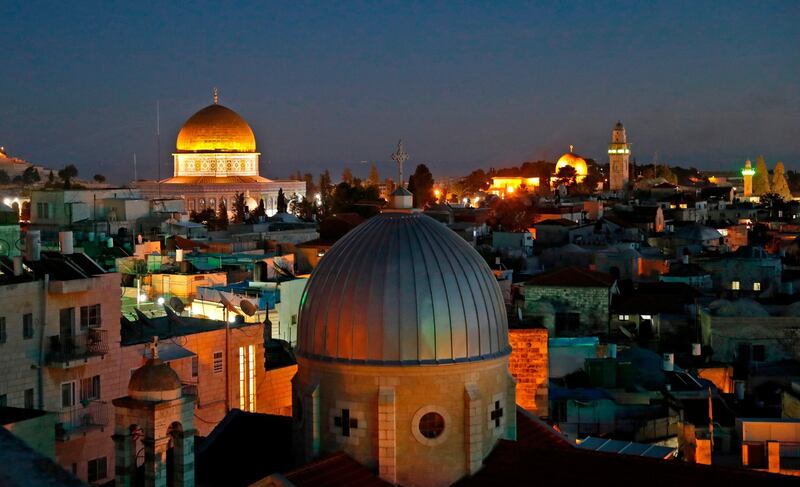Bahrain’s foreign minister has downplayed Australia’s decision to recognise West Jerusalem as Israel’s capital, while the Arab League slammed the move as “dangerous” to peace prospects.
Bahraini minister Sheikh Khalid bin Ahmed Al Khalifa said the Australian decision would not damage Palestinian hopes of a sovereign state with East Jerusalem as its capital.
"Australia's stance does not impact the legitimate Palestinian demands, first among them being East Jerusalem as the capital of Palestine, and it does not contradict the Arab Peace Initiative," he tweeted on Saturday.
The Arab League had issued a statement criticising the Australian decision as "blatantly biased towards the positions and policies of the Israeli occupation".
Mr Al Khalifa described the statement as “mere rhetoric and irresponsible”.
The Bahraini Foreign Ministry was not immediately available for comment.
Australian Prime Minister Scott Morrison announced the decision on Saturday, with the caveat that Canberra would not move an embassy to Jerusalem until a peace agreement was struck. It followed US President Donald Trump’s move to relocate the American embassy from Tel Aviv to the contested city in May.
Australia’s decision, like Mr Trump’s, angered the Arab world and Western allies. The Arab League warned that it would harm Australia’s relations with Arab allies.
"The decision is a dangerous violation of the international legal status of the city of Jerusalem and the relevant legitimacy resolutions," Saeed Abu Ali, Arab League assistant secretary general for the occupied Palestinian and Arab lands, said in the statement.
______________
Read more
[ Surreal scenes as US opens Jerusalem embassy ]
[ Israel arrests dozens of Palestinians in response to West Bank shooting ]
[ Border jitters: Lebanese villagers wary as Israel destroys Hezbollah tunnels ]
______________
The Arab body said such recognition would embolden Israel’s hard-right government to continue its policies in East Jerusalem, the territory it occupied in the 1967 Arab-Israeli War and where it has established a network of settlements that Palestinians say seek to prevent any contiguous Palestinian state.
Malaysia also censured its ally for reversing decades of foreign policy.
“Jerusalem should remain as it is now and not the capital of Israel,” Mr Mahathir told Reuters on the sidelines of an event in Bangkok.
“Jerusalem has always been under Palestine, so why are they taking the initiative to divide Jerusalem not belonging to them, but to divide the Arabs and the Jews? They have no rights,” he added.
The status of Jerusalem, home to sites holy to the Muslim, Jewish and Christian faiths, is one of the biggest obstacles to a peace agreement between Israel and Palestinians.
Israel regards all of Jerusalem as its capital, including the eastern sector that it annexed in a move not recognised internationally.
The reaction in Israel was mixed. The foreign ministry called it a “step in the right direction” but Israeli Prime Minister Benjamin Netanyahu declined to comment on the decision. It is thought that he expected Australia to move its embassy to the contested city. A cabinet minister, Tzachi Hanegbi, was more critical, saying that Canberra “made a mistake”.






